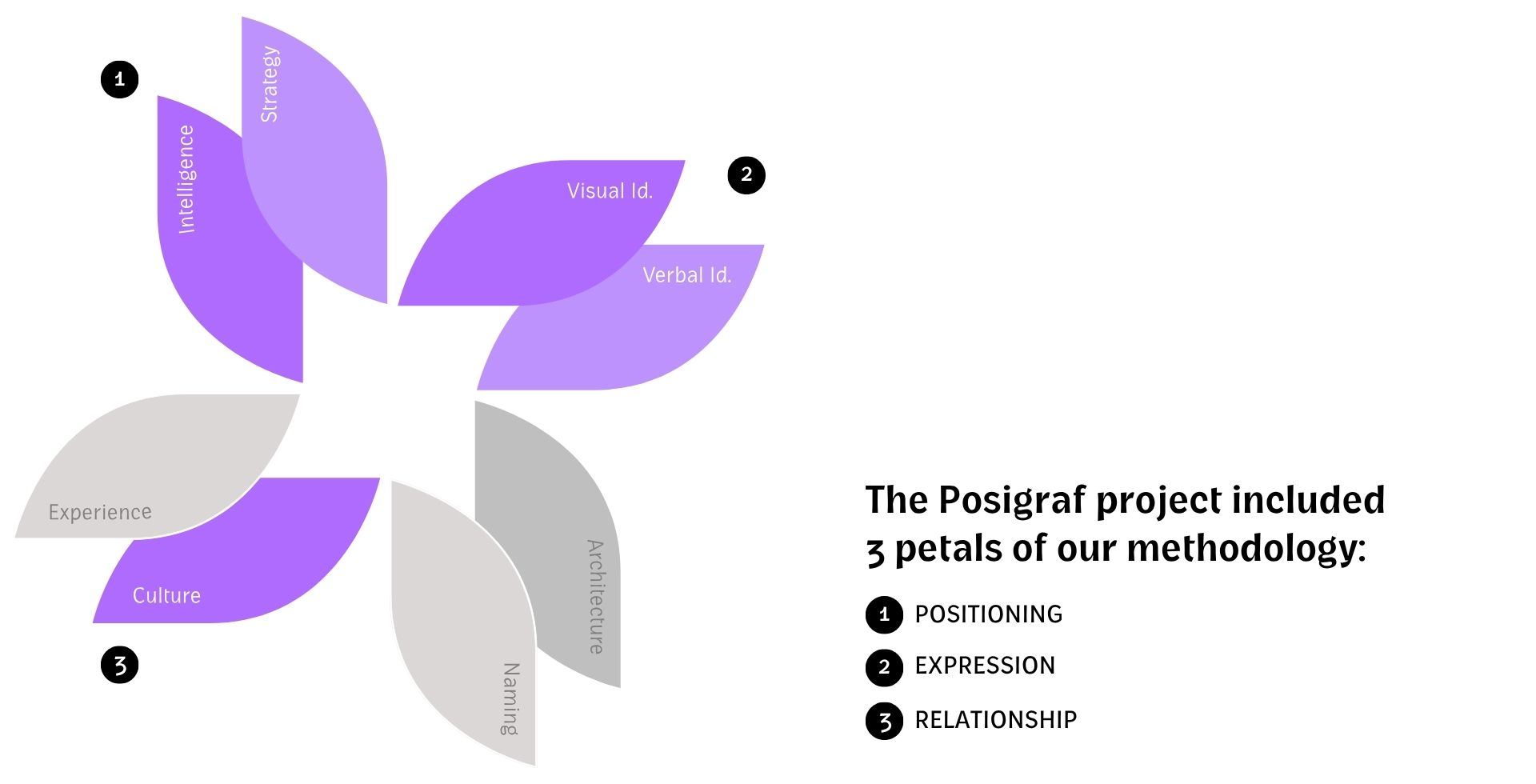
Rebranding to graphic industry
Posigraf is one of the leading printing companies in Latin America, renowned for its excellence in large-scale printing. Founded at the heart of Grupo Positivo, an educational group established in 1972, and with over 50 years of history, Posigraf combines tradition and innovation to meet the demands of both national and international markets.
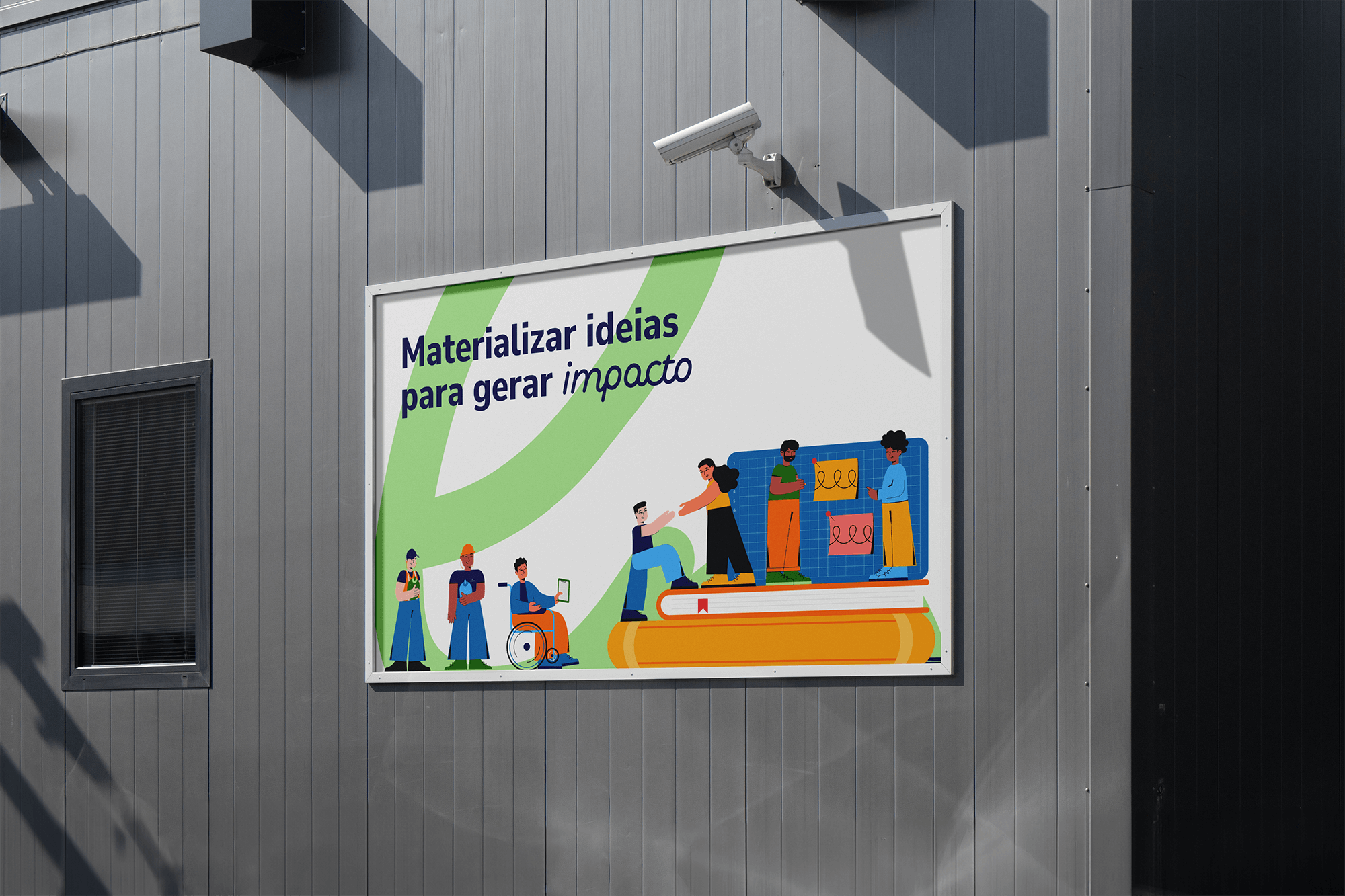
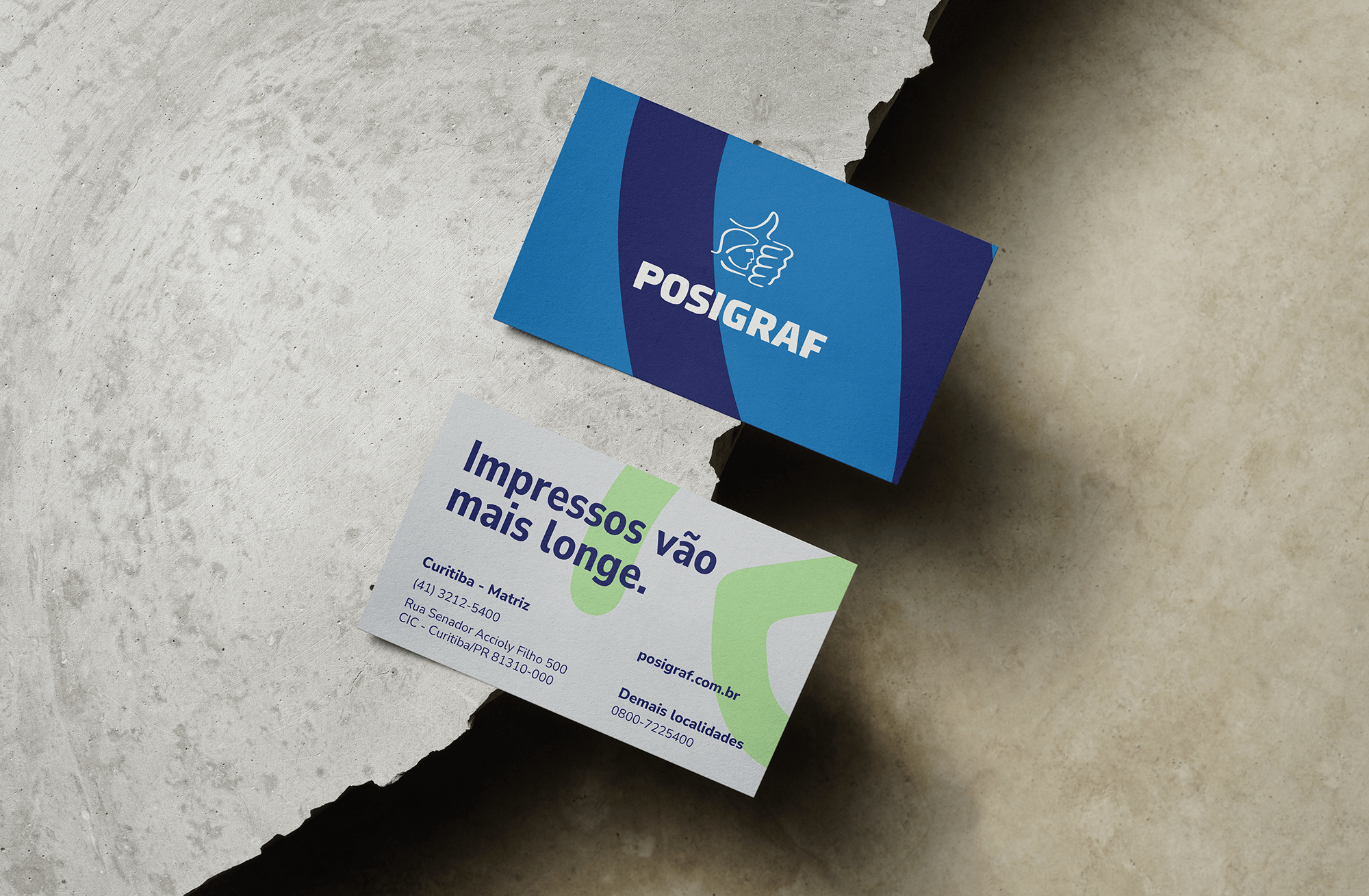
Rebranding for Posigraf
Our Goal with the Project
The main goal of the project was to redefine Posigraf’s key differentiator, and consequently, its brand positioning, since over the course of its 50-year history, this element had become unclear to the company’s leadership. This lack of clarity especially impacted the marketing team’s performance, as they lacked a clear direction to build the brand narrative and guide communication efforts, both internally and externally.
Challenge Summary: How can we refresh Posigraf’s brand strategy and its verbal and visual identity system, aligning tradition and innovation through a more accessible, inspiring, and contemporary language, without losing the strength and credibility built over decades? How can we clearly communicate that we are a benchmark in governance and social-environmental responsibility, while maintaining a strong connection with the Positivo Group brand, in a way that feels modern, inviting, and far from outdated?
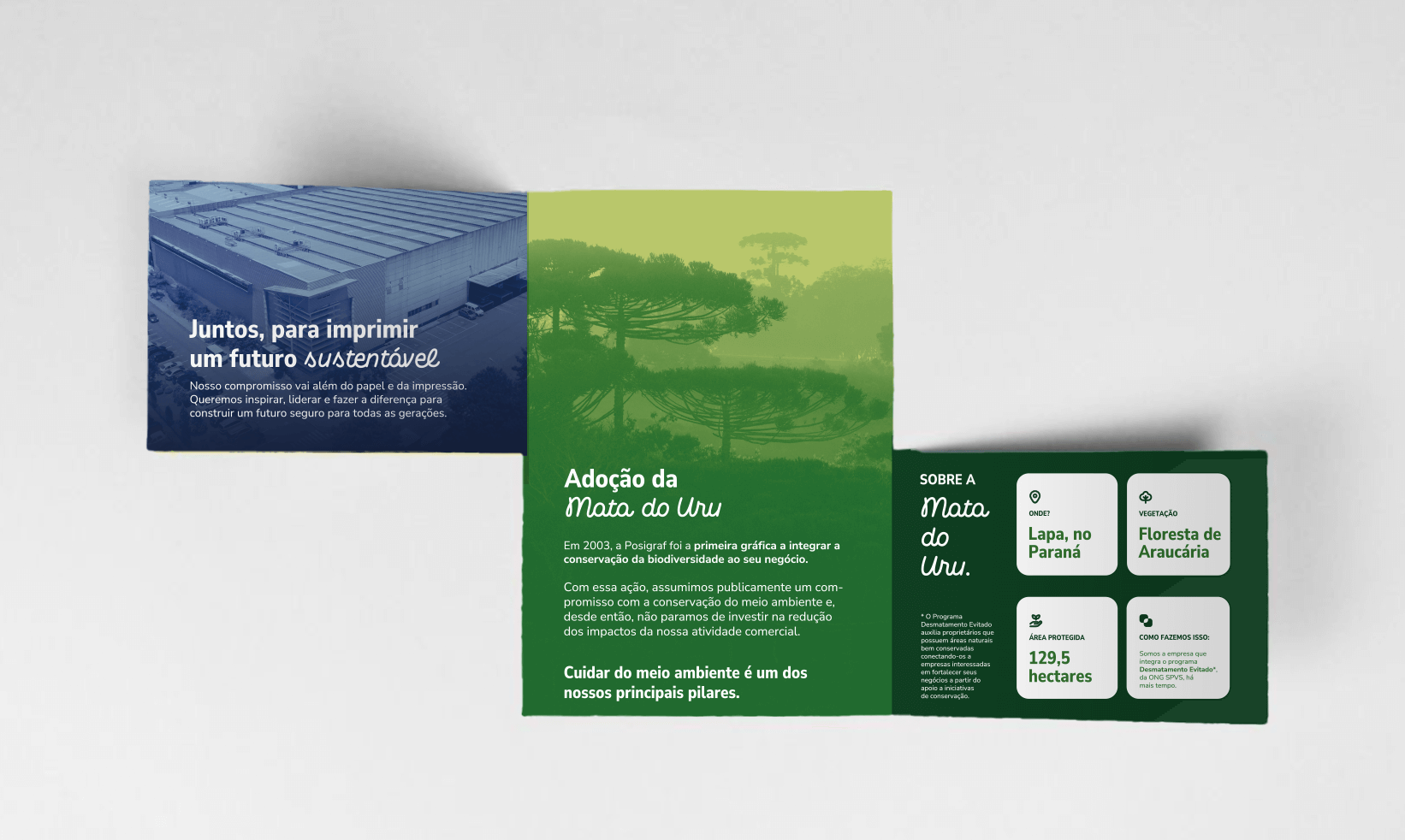
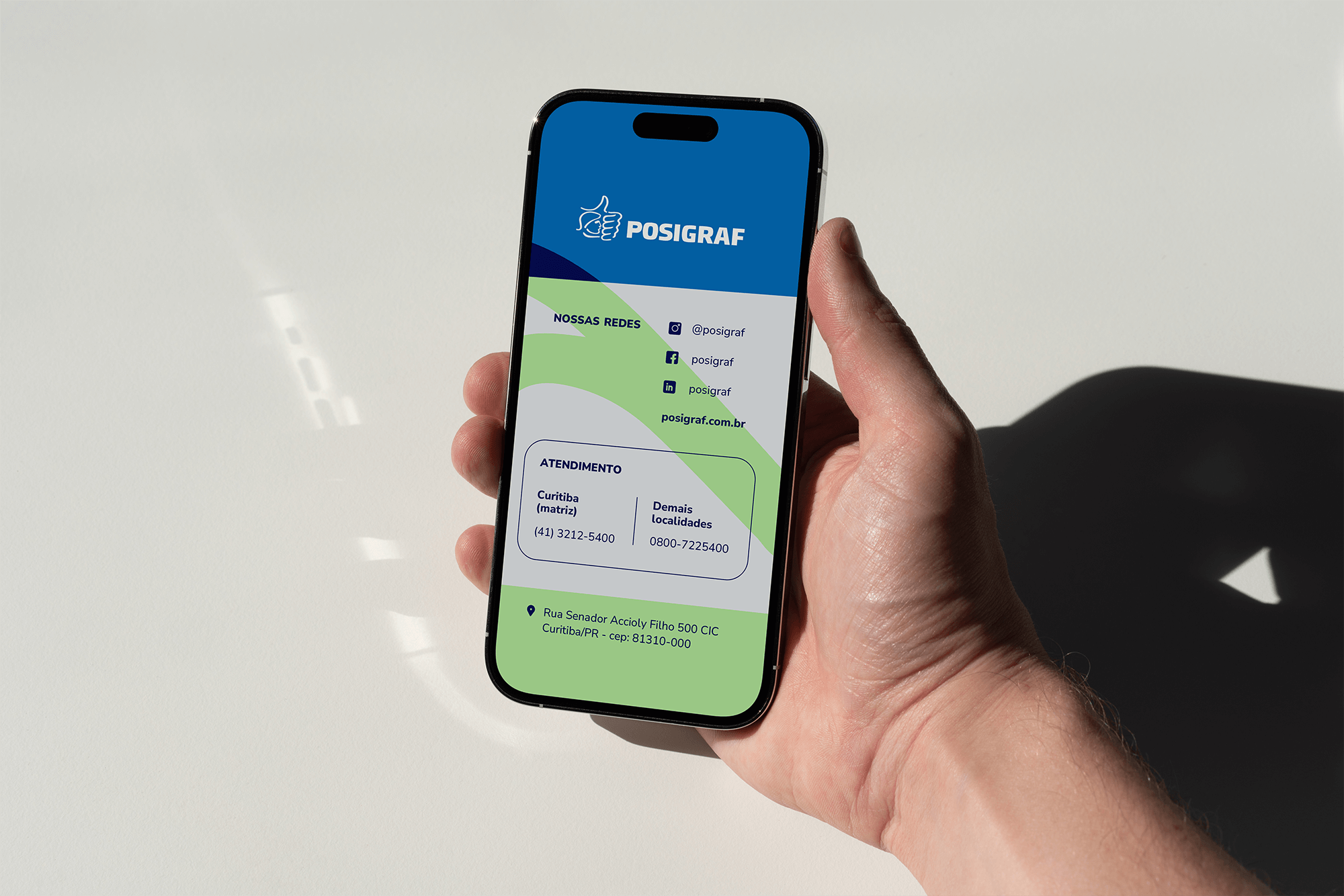
Insight and Strategy
We began by mapping the brand’s historical assets and its core value pillars: education, sustainability, partnership, and impact. The strategy then focused on positioning Posigraf around the purpose of “Producing printed materials that generate Positive impact.” With this statement, we also reinforced the connection between the printing company and the Positivo Group.
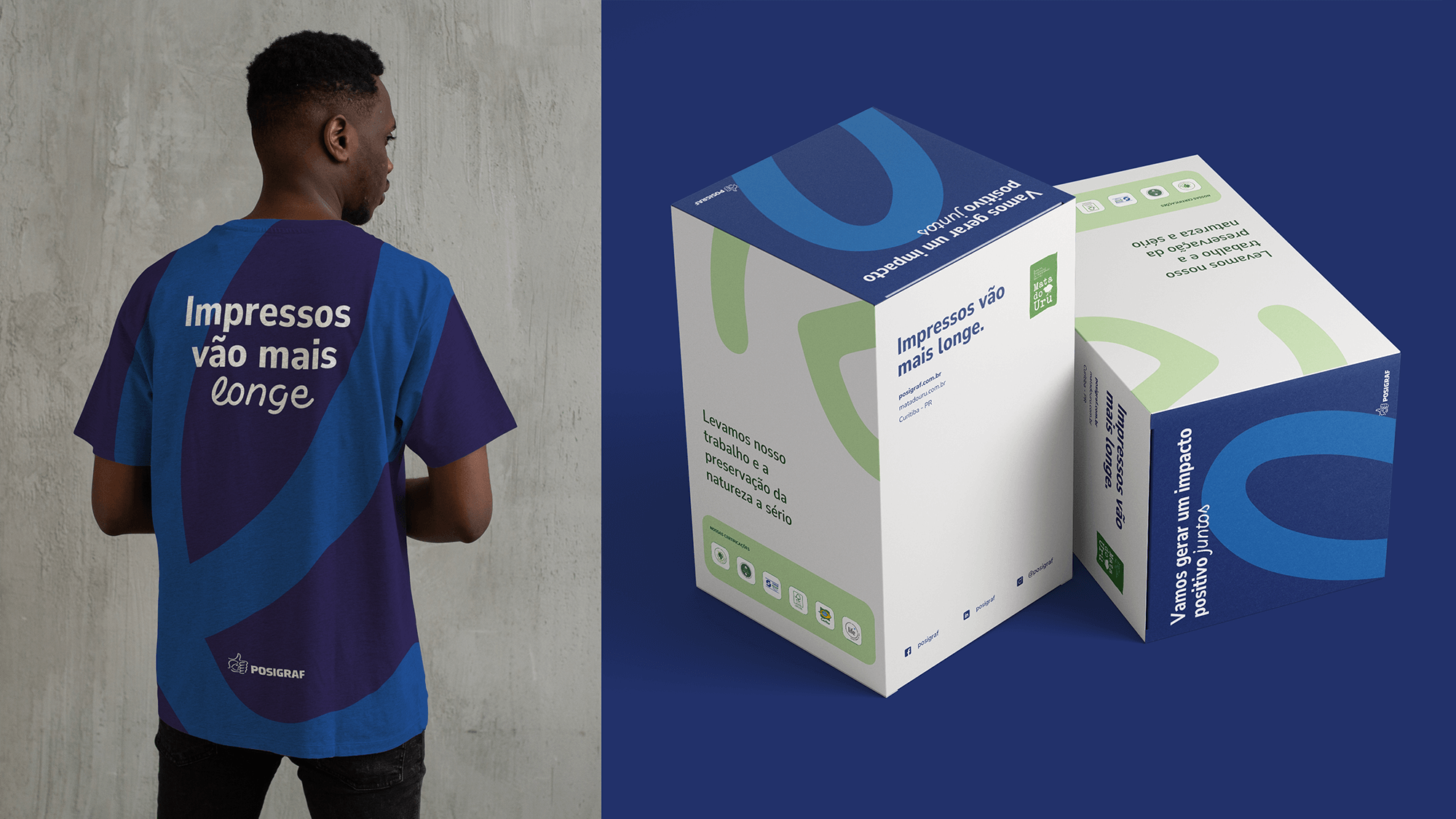
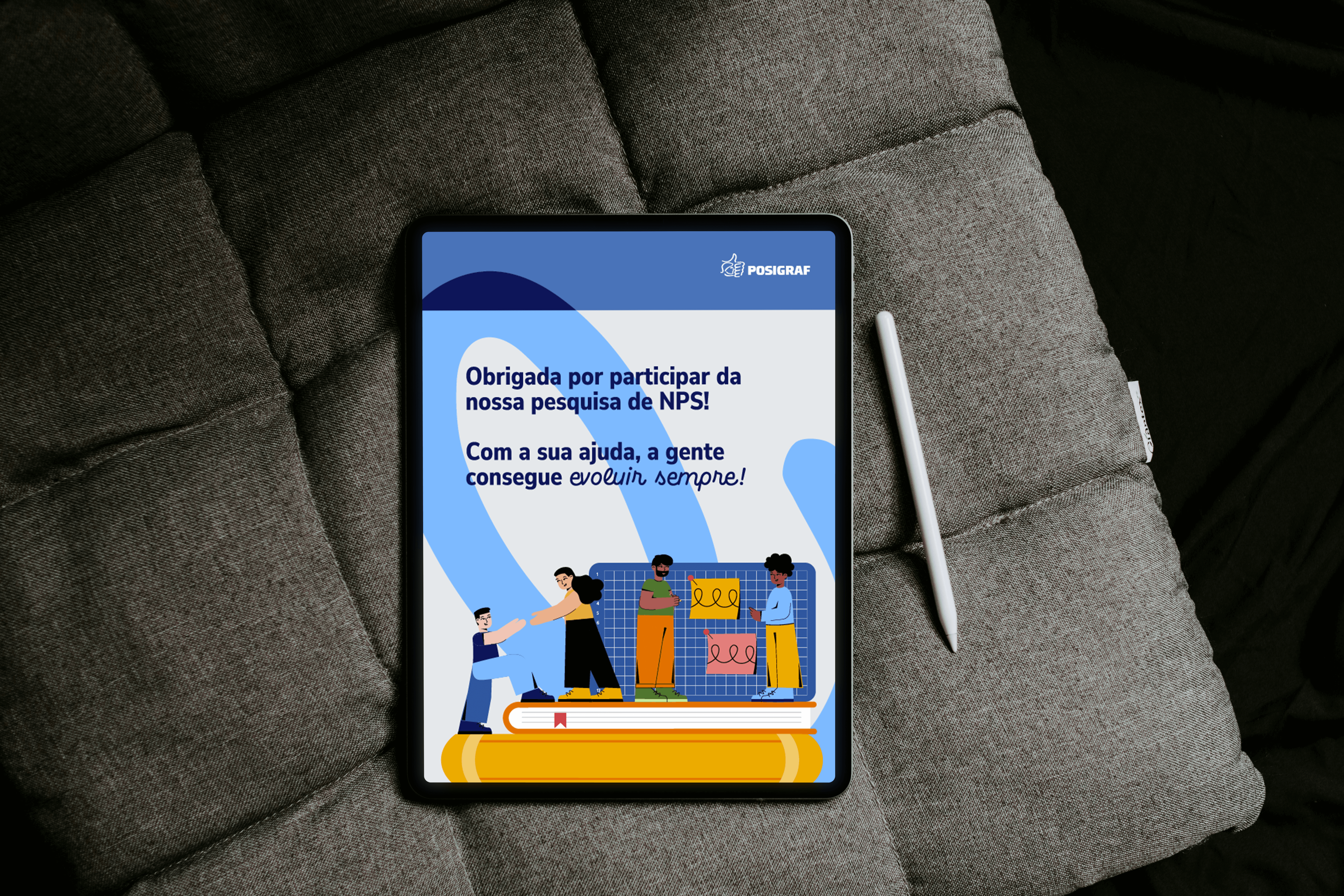
Verbal Identity
Posigraf’s verbal language and messaging were designed to reflect its scale and professionalism with a human touch. The brand voice was built around its core essence: modern, approachable, and trustworthy, reinforcing its role as a strategic partner in the printing industry. The tone of voice was crafted to express a Posigraf that communicates with clarity, confidence, and empathy, conveying its future vision: to be a reference in printing solutions that generate impact and create lasting value.

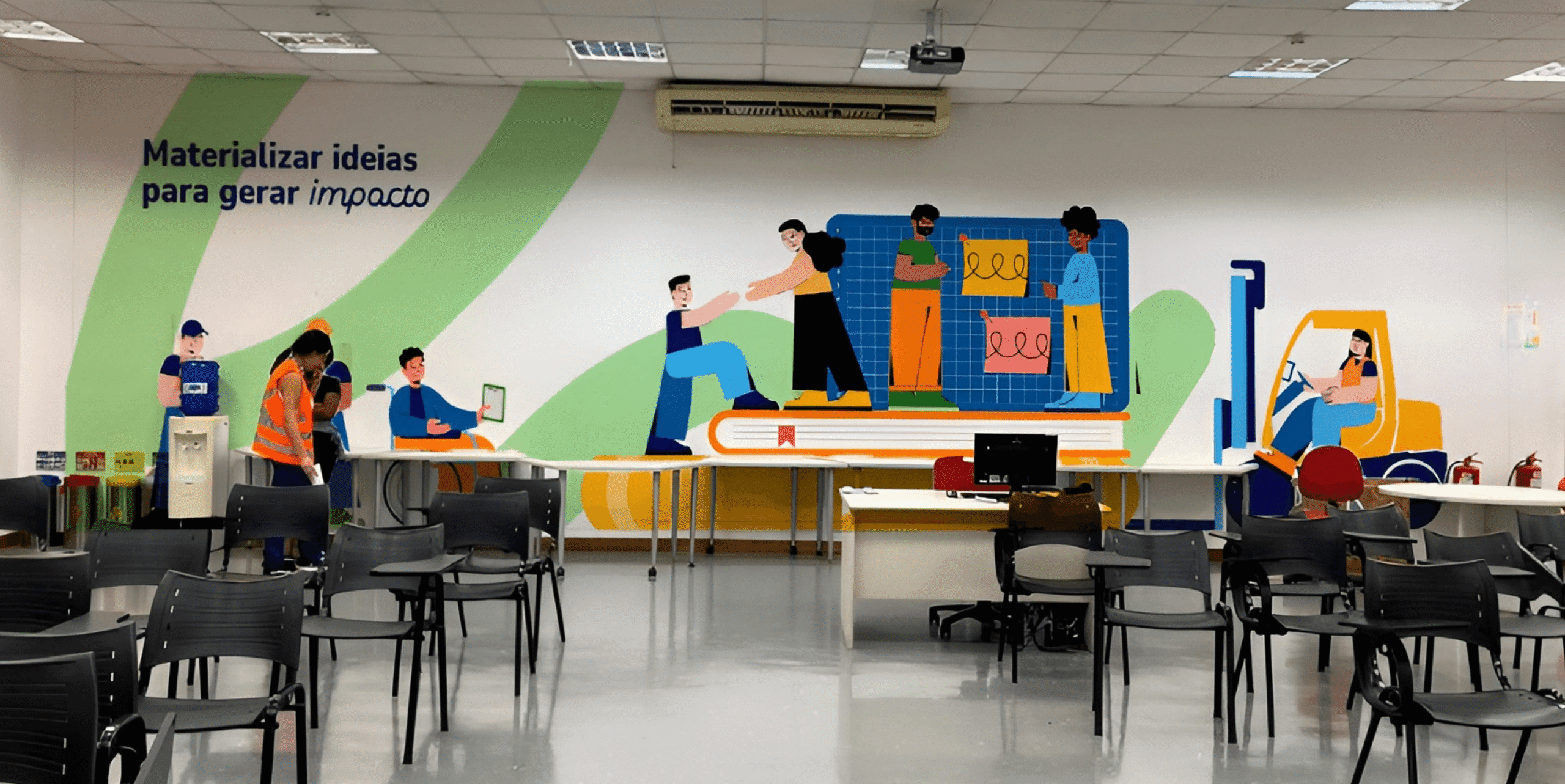
Visual Identity
The visual identity was developed without altering the logo. Working within that limitation, we created visual elements that bring the brand closer to its audience while reflecting values of accessibility, sustainability, and clarity. The new visual system softens the company’s robust image while preserving its professionalism.
The color palette was refined and expanded to allow Posigraf to shift between a sophisticated institutional tone and a more casual one, depending on the channel and communication goal. Shades of green were strategically introduced to strengthen the brand’s connection to environmental responsibility.
A complete set of proprietary illustrations was developed to help convey complex concepts in a light and engaging way, while also making internal communication more dynamic and appealing for employees. Special attention was given to ensuring diversity in character representation, including portraying women in roles where they are typically underrepresented.

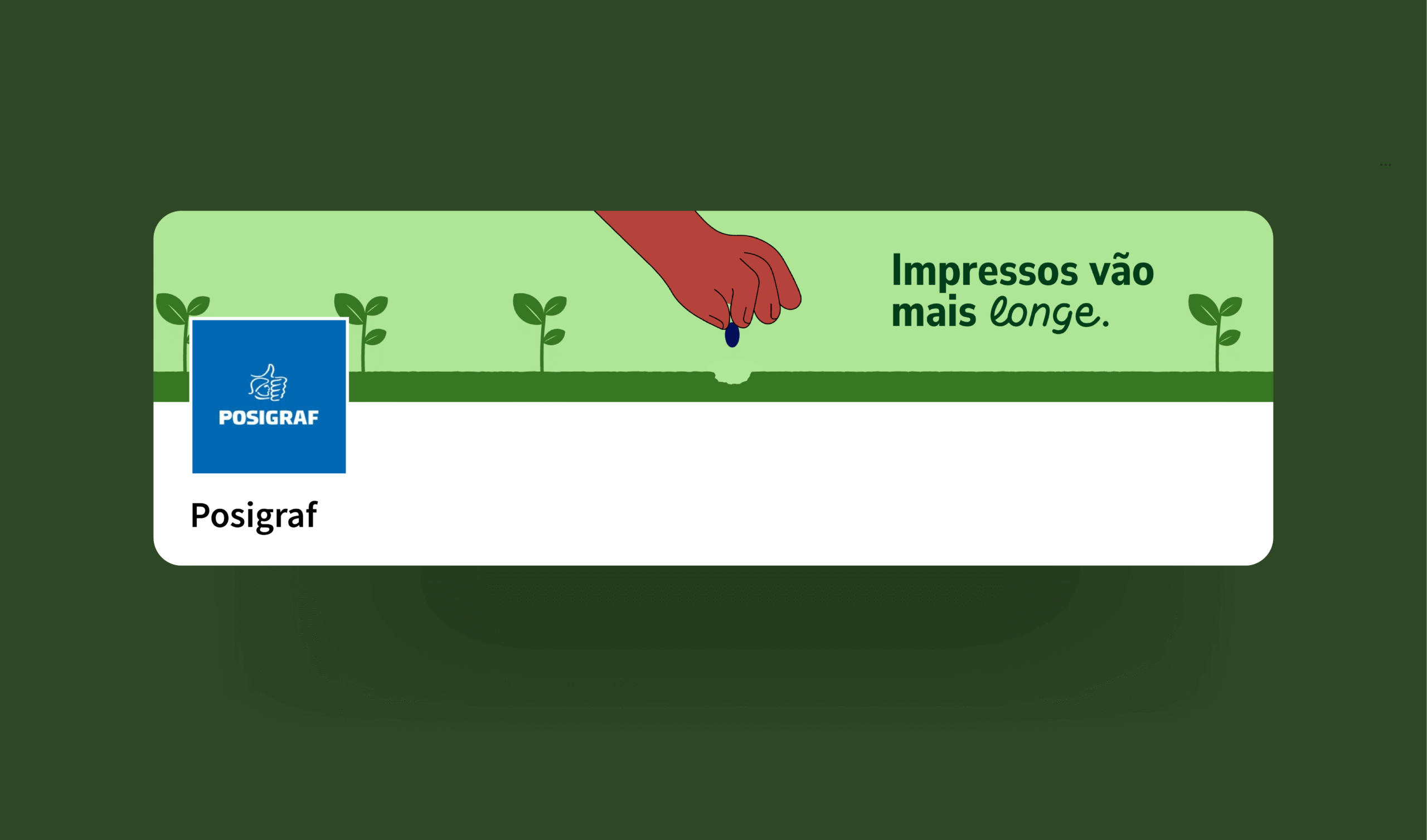
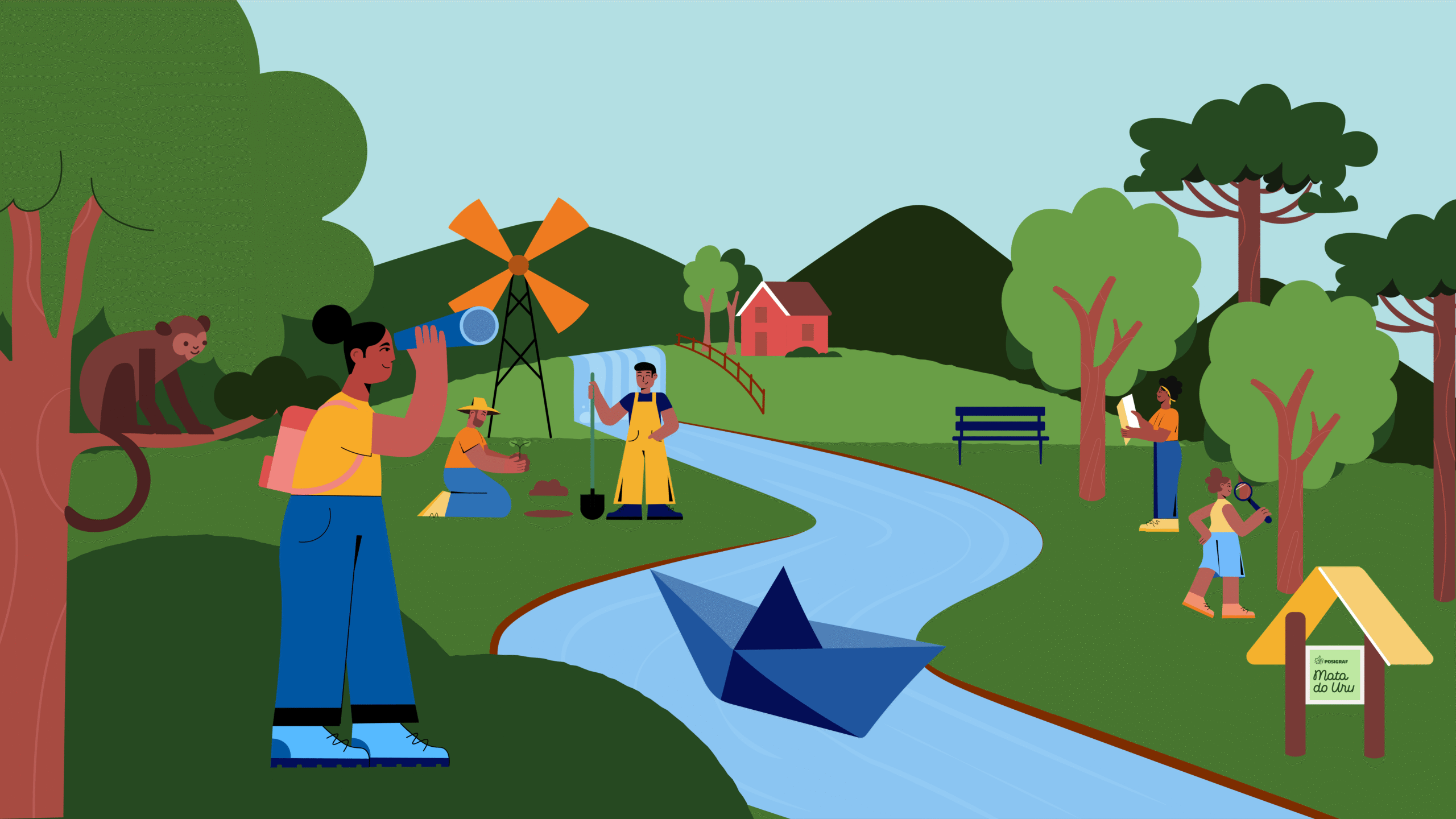
Type design
We created a proprietary typographic system for Posigraf: Positype. The cursive letters strengthen the brand’s connection to the world of education, while also adding a more human touch to its expression.
Positype is used sparingly and follows strict rules, limiting its application to just one word or key term in the layout. Individual letters are also featured in large sizes within the design, forming graphic elements that unify the brand’s entire visual language and strategy.
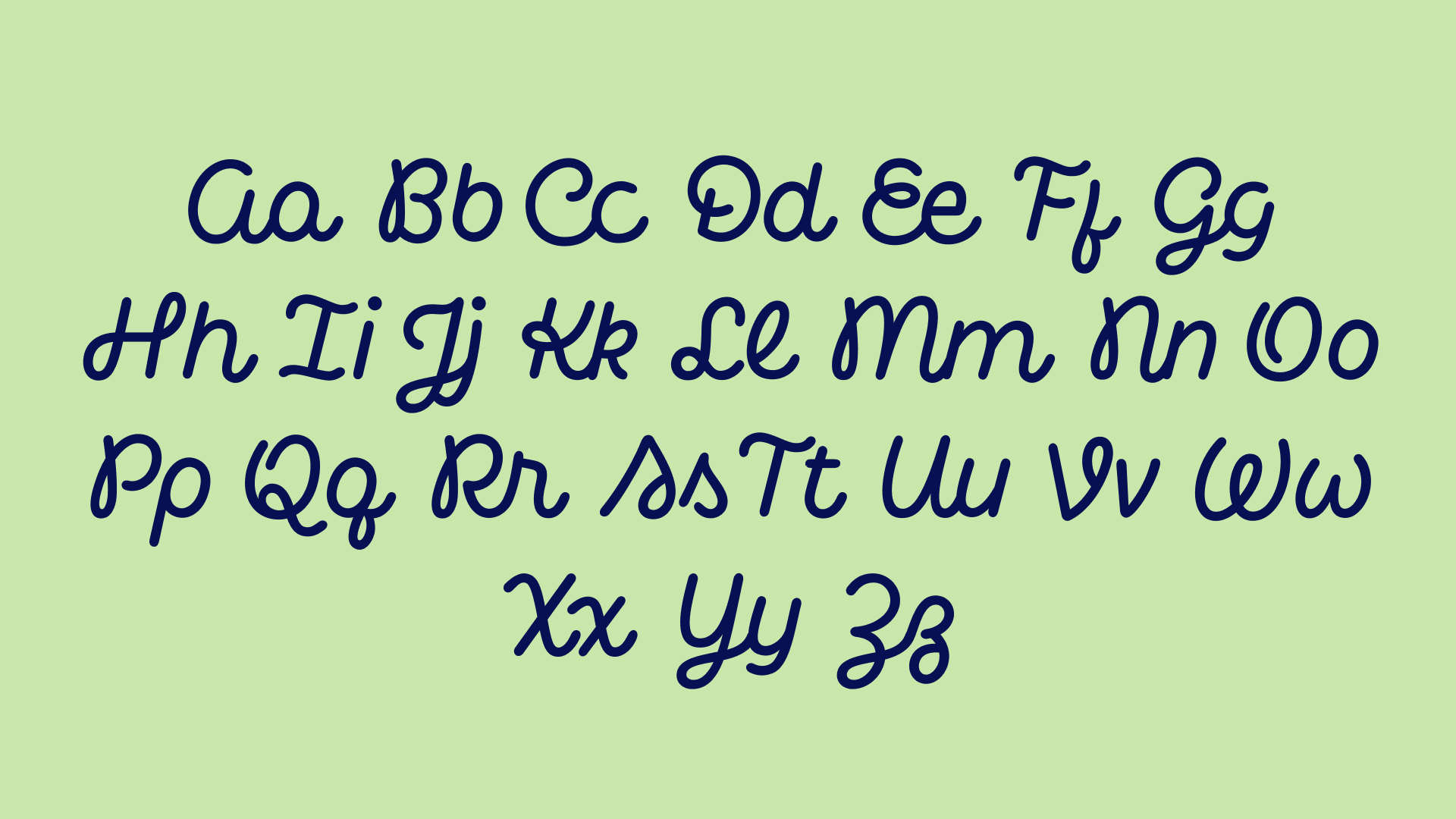
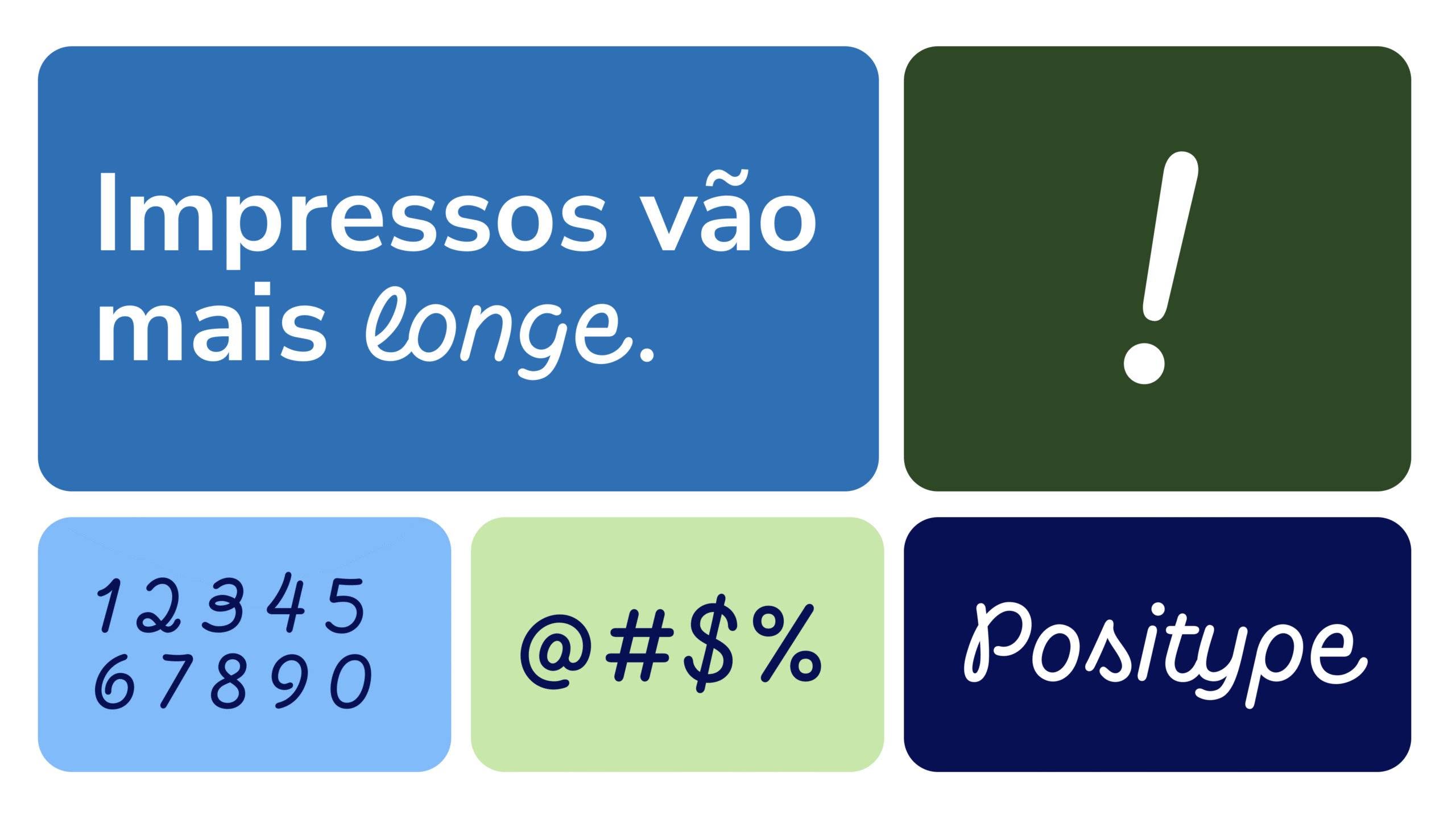
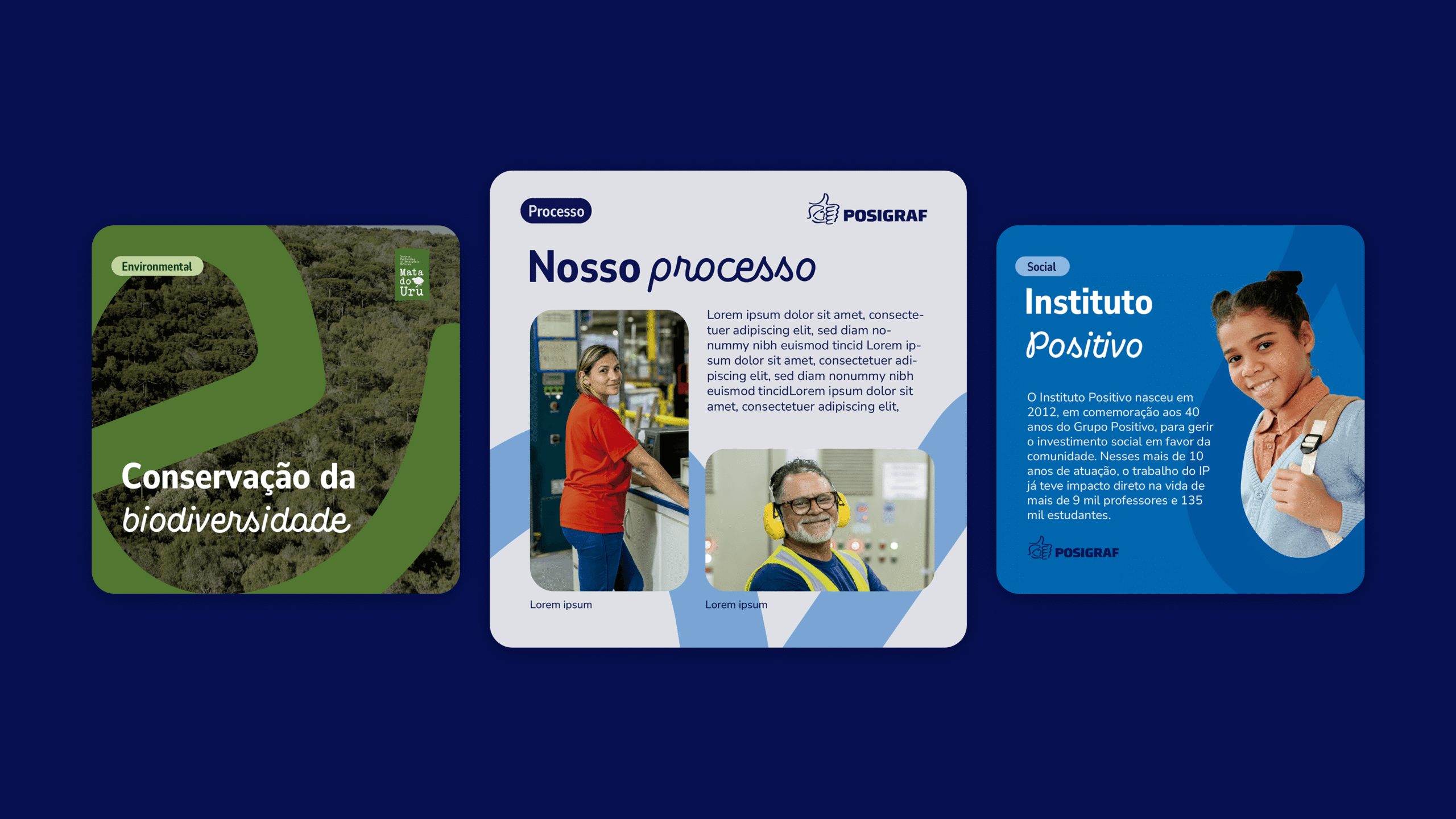
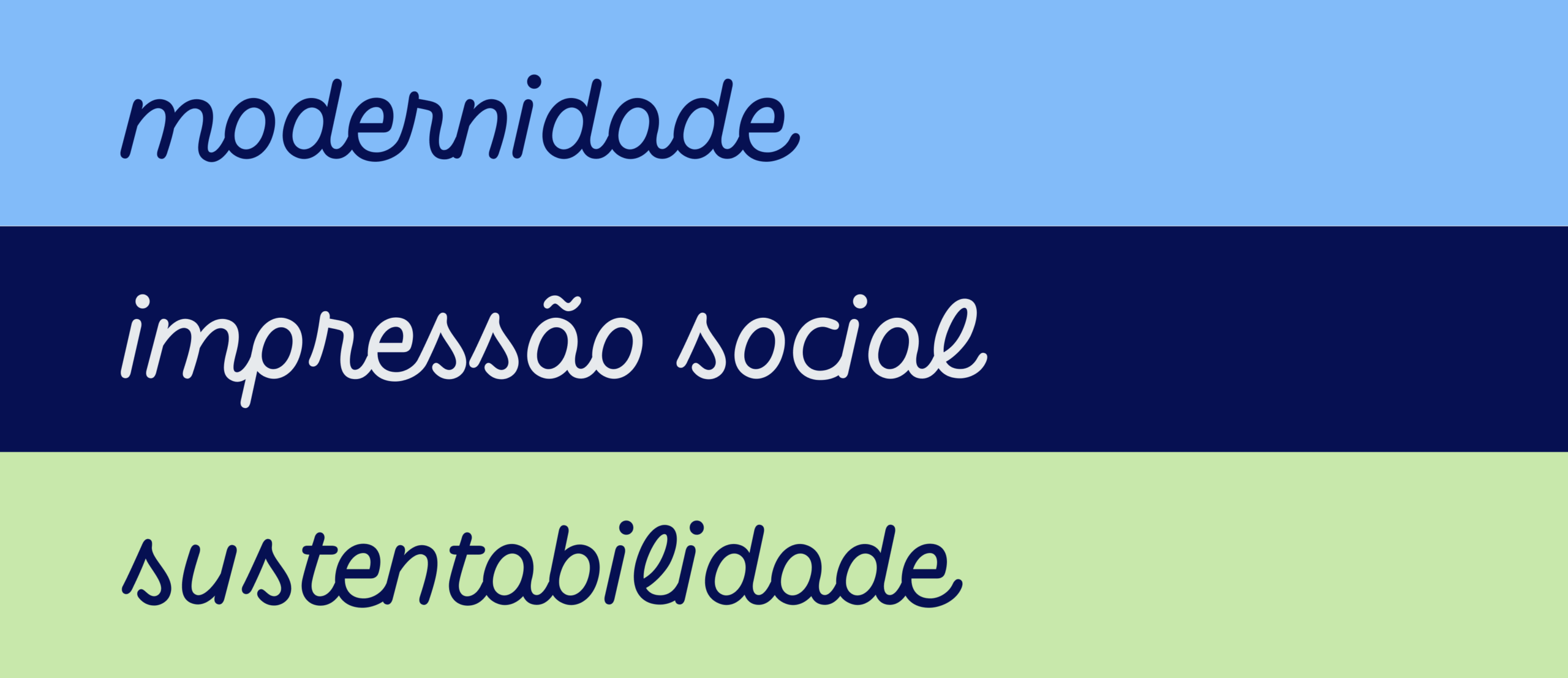
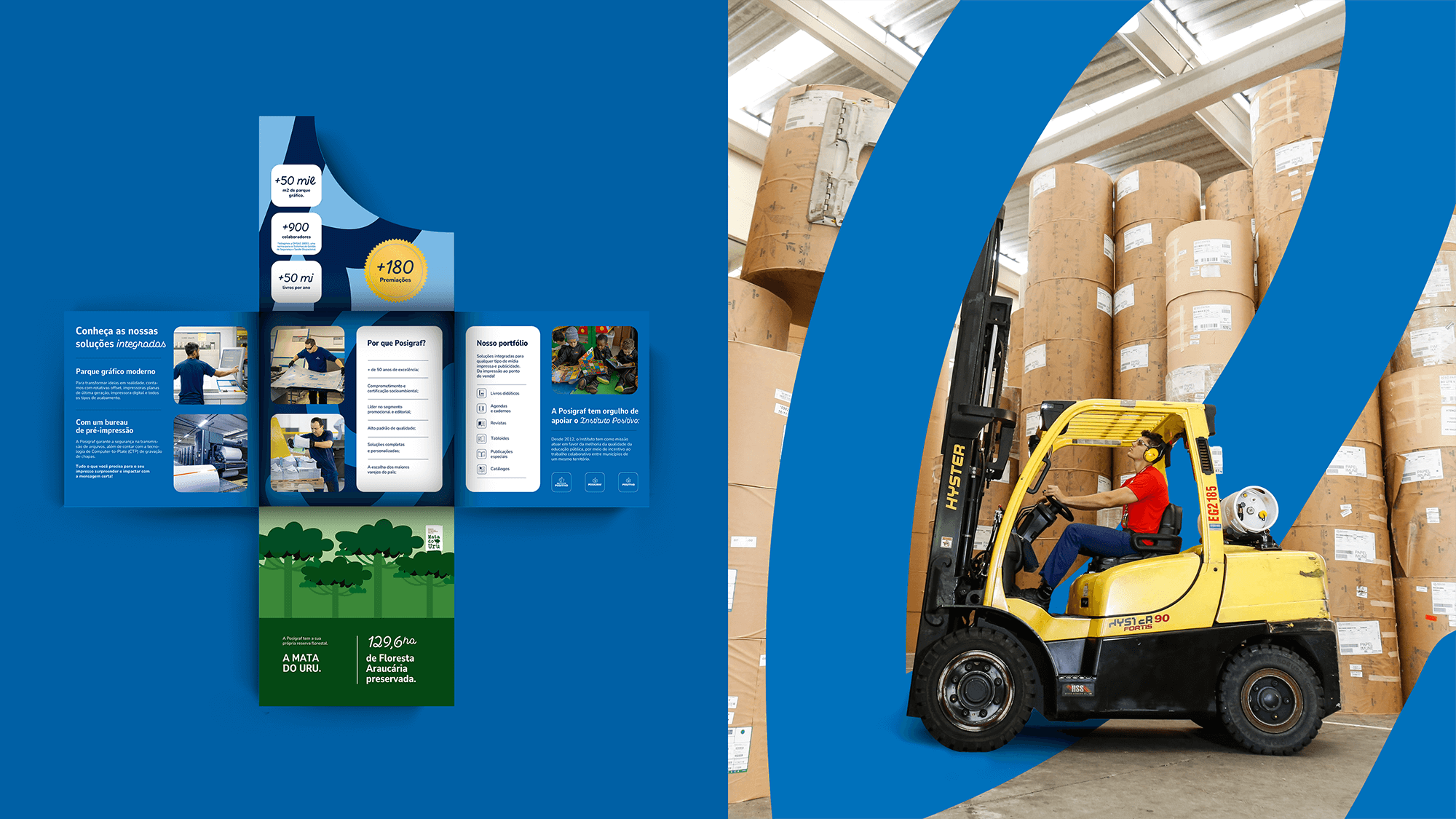
Branding and Visual Identity: Motora
Strategic Direction: Luize Araújo
Strategy and writing: Luize Araújo, Juliana Argollo
Type Design: Júlia Lago
Art Direction: Luize Araújo, Júlia Lago
Illustrations: Maria Stéfanni Carvalho
Designers: Júlia Lago, Luize Araújo, Maria Stéfanni Carvalho, Julia Sales, Laís Fonseca
